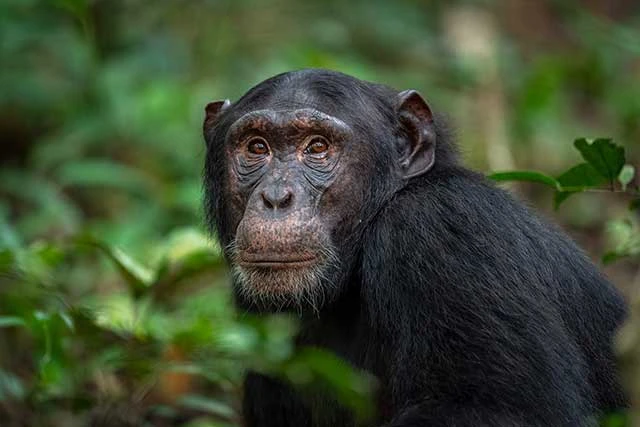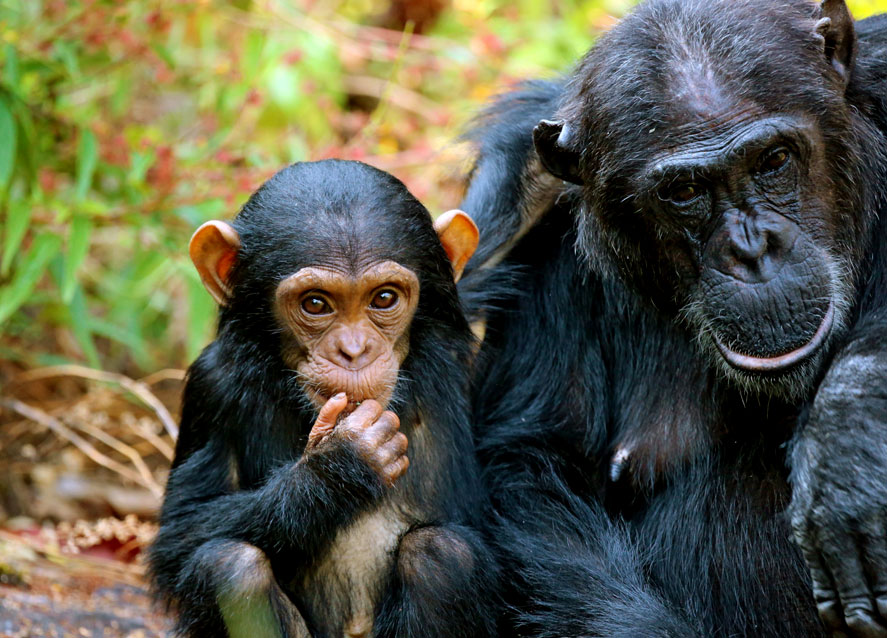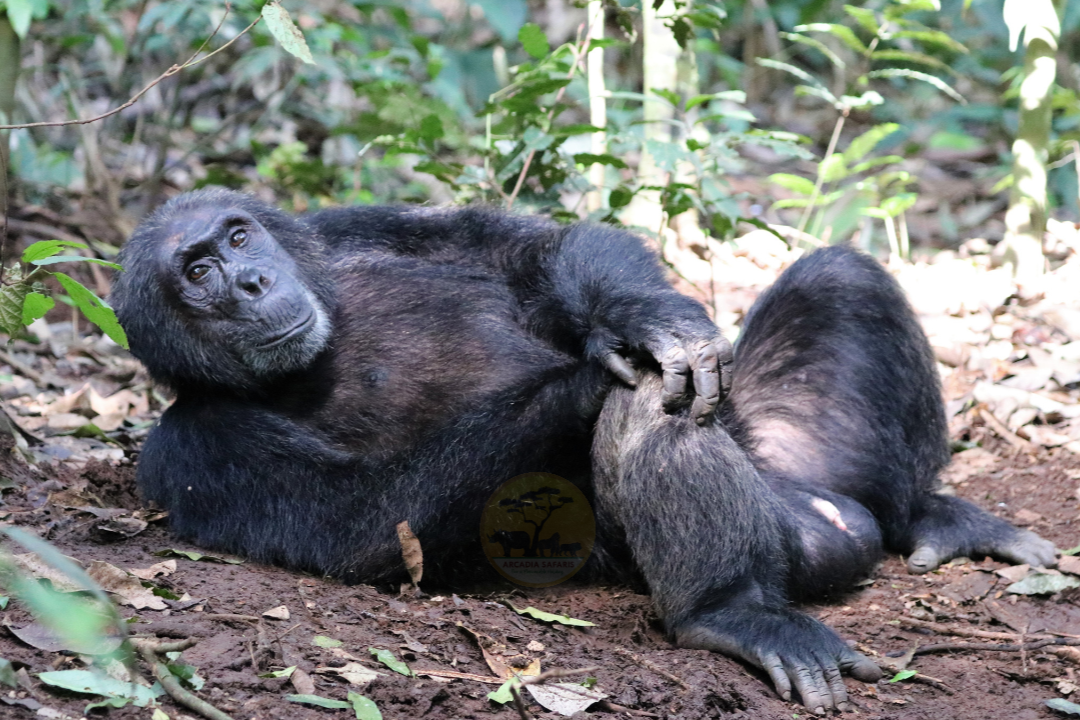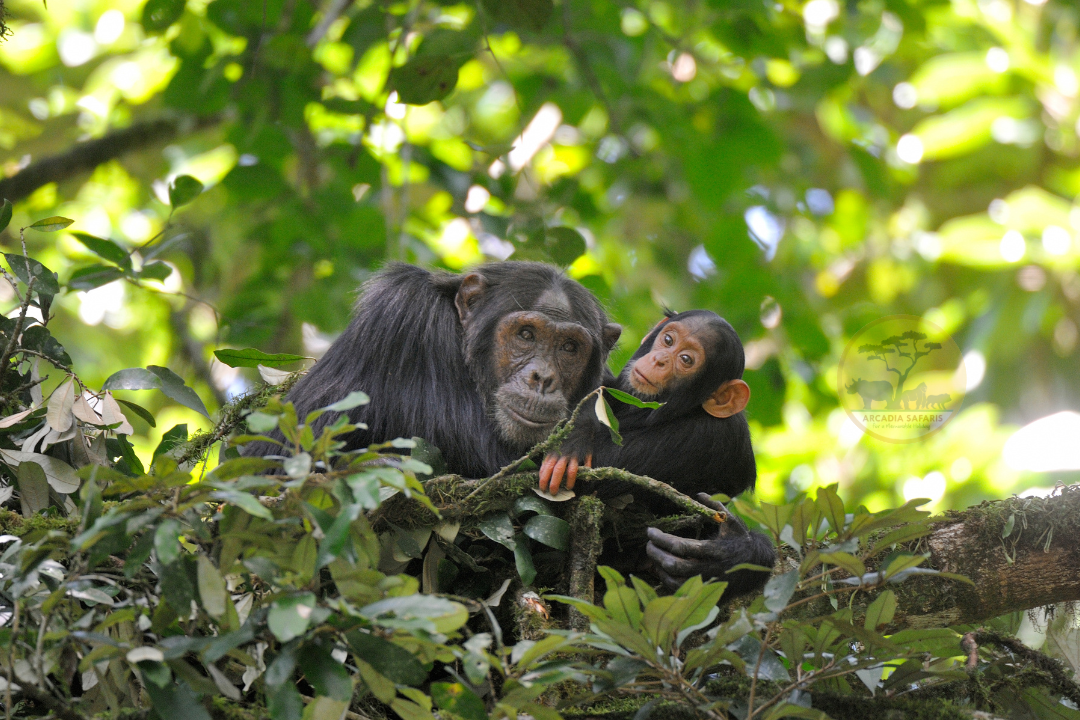Amazing Facts About Chimpanzees: Our Sisters and Brothers of the Animal Kingdom.
Facts about Chimpanzee; Chimpanzees are among the most intelligent and interesting animals on Earth. These great apes share a remarkable 98-99% of their DNA with humans, and have been a source of inspiration for scientists, wildlife enthusiasts, and nature lovers for many centuries. From their complex social behaviors to their extraordinary use of tools, chimpanzees are a manifestation of how rich the natural world is. This article goes in-depth into some intriguing facts about these amazing primates.
1. Habitat: Where Do Chimpanzees Live?
Their home regions are the forests and grasslands of central and western parts of Africa. The habitats vary between rain forests and woodlands to grassland from tropical to subtropical and savannahs. Uganda, Tanzania, Rwanda, Gabon, Cameroon, and the Democratic Republic of Congo- key places within the range of chimpanzee occurrence.
One of the most famous places to see chimpanzees in their natural habitat is Kibale Forest National Park, Uganda, with one of the highest concentrations of chimpanzees in the world. Others include Gombe Stream National Park in Tanzania and the wider Congo Basin. These offer food, shelter, and space for sustenance and social interaction.
2. Diet: What Do Chimpanzees Eat?
Chimpanzees have an extremely broad diet and, thus, are complete omnivores. The major share of the intake is constituted by fruits, though the consumption of leaves, seeds, flowers, and bark takes place rather often. The known foods consumed by this animal also include insects: termites and ants. Large hunting of monkeys, birds, and even duikers may occur from time to time. Facts about Chimpanzee
The use of tools during feeding is one of the most interesting chimpanzee behaviors. They insert sticks into termite mounds to get the termites out or use stones to crack nuts. This tool usage indicates their problem-solving abilities and adaptability in the wild.
![]()
3. Are Chimpanzees Social?
Chimpanzees are social animals and exist in groups called communities that can be as small as 20 and as big as 150 individuals. In these communities, the general hierarchical structure will be seen; on top, a dominant male frequently leads the community. In fact, dominance does not depend merely on the level of violence, but equally on intellect, coalitions, and the ability to keep peace. Facts about Chimpanzee
Within these groups, chimps form a variety of smaller subgroups that are constantly interacting and breaking up during the day. Important activities include grooming, through which their social bonds get strengthened, stress is eased, and hygiene is maintained. This amount of sociality is fairly comparable to relationships in human life.
4. How Do Chimpanzees Communicate?
Chimpanzees have a rich communication that includes vocalizations, gestures, and facial expressions. They vocalize with hooting, screaming, and grunting in order to convey specific meanings about warning, excitement, or even the location of food.
Attention-getting gestures may take the form of pointing, raising, and clapping to let their intentions or desires be made known. Wide grinning and pouting become powerful pre-verbal pointers toward their inner feelings. The usage of these communications implies a rather unique understanding of one’s emotions, as well as social situations, making him one of those few cognizant beings in the animal kingdom.
5. How Smart Are Chimpanzees?
Chimpanzees are considered one of the most intelligent non-human animals. Their cognitive abilities are remarkable, including problem-solving, memory retention, and self-awareness. Studies have shown that chimpanzees can recognize themselves in mirrors, a sign of self-awareness shared by only a few species.
In controlled environments, the chimpanzee has learned to acquire and express sign language and symbolic systems in communication. They plan for the future events; thus, they understand cause and effects and at times show a sense of fairness in social relations. Such innovation and teachings on the use of tools are indicative that chimpanzees are intelligent enough.

6.How Long Do Chimpanzees Live?
In the wild, chimpanzees usually live to be about 33 to 40 years old, although some have been known to reach 50. In captivity, with regular food and medical care, as well as protection from predators, they can live into their 60s and beyond. Facts about Chimpanzee
7. How Do Chimpanzees Reproduce?
The reproductive cycle of chimpanzees is very similar to that of humans, as their females start reproducing when they are approximately 13 years old. Their cycle is a 35-day estrous cycle, wherein a swelling around the female’s rump signals fertility. This swelling signals readiness to mate, often attracting multiple males.
It follows a gestation period of about 230 days-around 7.5 months-with a single birth; twinning is very rare in chimpanzees. At birth, the baby is absolutely dependent on the mother; it clings to the hair on her belly and sides, and continues to suck until he or she is about 3 to 4 years old. Infants learn many survival skills and social behaviors from mothers, which further develops in females much affectionate maternal bonds.
8. What Challenges Do Chimpanzees Face?
Despite their intelligence and adaptability, the International Union for Conservation of Nature (IUCN) currently classifies chimpanzees as endangered. Some major threats include the following:
Habitat Loss: Deforestation for agriculture, wood extraction, and human settlement is dramatically reducing their natural habitats at a very fast rate.
Poaching: Some chimpanzees are hunted for bushmeat, while others are captured for the illegal pet trade.
Disease: The Chimpanzees are prone to human diseases such as flu and Ebola that could decimate them in great number.
Their survival, on the other hand, requires the continuation of protected areas, sanctuaries, and ecotourism. Some of the sanctuaries involved in rescuing and rehabilitating orphaned and injured chimpanzees include Ngamba Island Chimpanzee Sanctuary in Uganda.

9. What Makes Chimpanzees Unique?
The behavior of chimpanzees mimics that of humans so well. They are empathetic, comforting the distraught member of their group; they cooperate on hunts and in defense of territory. They are playful, with high jollity in younger members, showing just how joyful and curious they truly can be. Facts about Chimpanzee
In some communities, chimpanzees were observed to use leaves as sponges to collect water, or to weave beds of branches to lie in. Such unique behaviors that differentiate one group from the other suggest a form of cultural learning.
10. How Do We Learn About Chimpanzees?
Scientists like Dr. Jane Goodall, who spent years observing wild chimpanzees in Gombe Stream National Park in Tanzania, enabled much of what we have learned about chimpanzees through decades of research. Her work disclosed the depth of their intelligence and emotional lives, and structural organization that transformed the human concept of animals.
Research continues to date, and with modern technologies such as camera traps and genetic analysis, the depth of insight into chimpanzee behavior and conservation needs is even greater.
11. Why are Chimpanzees Important?
Chimpanzees contribute to ecology through the dispersal of seeds, which helps maintain the health and diversity of their habitats. They strongly influence the balance of species in their environment and are essential to the overall ecosystem.
Besides their ecological importance, studies on chimpanzees shed much light on human evolution. Through these great primates, scientists learn about the origins of human behavior, social structures, and cognition.

12. How Can You Help Protect Chimpanzees?
Protection of the chimpanzee requires everybody’s involvement. Here are some ways you can help:
Visit ecotourism sites such as Kibale Forest National Park or sanctuaries like Ngamba Island, where part of your money goes to support conservation.
Donate to organizations like the Jane Goodall Institute, which works round the clock to protect these animals and their habitats.
Advocate for policies that combat deforestation and illegal wildlife trade.
Educate other people on how chimpanzees and their habitats should be conserved.
How to Book Your Chimpanzee Tracking Safari.
Join Arcadia Safaris for an indelible adventure in some of Uganda or Rwanda’s most beautiful forests and have a chance to track its fascinating chimps. Easy booking:
Reach Out: Get in touch with us through email, phone number, or our website by stating your travel dates and destination-one being Kibale Forest National Park, Budongo Forest, Kyambura and Nyungwe Forest National Park in Rwanda.
Customize Your Trip: Let us tailor your safari to suit your needs for accommodations, transportation, and additional activities.
Confirm & Pay: Secure your booking with a deposit and receive detailed confirmation.
Get ready for an adventure into the wild!
What to Pack for Your Chimpanzee Tracking.
Get ready for this once-in-a-lifetime adventure! Here‘s what you need: Facts about Chimpanzee
- Clothing: comfortable, lightweight, long-sleeved shirts and pants in neutral colors to protect against insects and bushes.
- Sturdy Hiking Boots: you will need them when you hit the forest trails.
- Rain Gear: a waterproof jacket; the weather in these forests can be unpredictable.
- Daypack: in which you will carry water, snacks, and other essentials.
- Insect Repellent & Sunscreen: keep bugs and sunburn at bay.
- Camera & Binoculars: Capture the magic of moments and spot wildlife.
Ready to trek? Let nature amaze you!

Our Remarkable Chimpanzee Tracking Safari Packages.
Below is a variety of best Uganda and Rwanda Chimpanzee Tracking Safari Packages the Arcadia Safaris offers. Kindly browse through and make your inquiry to day. Join us on a Journey of discovery and adventure and let us show you the best we offer.
22 Days Best of Uganda Wilderness Adventure
18 Day Exploring Uganda Safari
15 Day Gorillas-Chimps and Big Five Safari
14 Day Uganda-Rwanda Wildlife and Primates Safari
10 Day Uganda Wildlife and Primates Safari
10 Day Highlights of Uganda Safari
8 Day Gorillas-Chimps and Big Five Experience
7 Day Murchison Falls with Chimps and Gorillas
7 Days Rwanda Gorilla & Chimpanzee Classic Safari Adventure
6 Day Chimps Trekking and Nyungwe National Forest
5 Day Best of Rwanda Primates Safari
4 Day Kibale Forest Chimpanzee Tracking
Final Remarks on Chimpanzee Facts and Behaviors.
Chimpanzees are indeed very remarkable creatures, with intelligence, emotions, and behaviors that parallel our own. As our closest relatives in the animal kingdom, they remind us of the interconnectedness of all life on Earth. But their survival is in our hands. We can make sure that future generations continue to marvel at the wonders of chimpanzees in the wild by supporting conservation efforts and spreading awareness about their plight.












